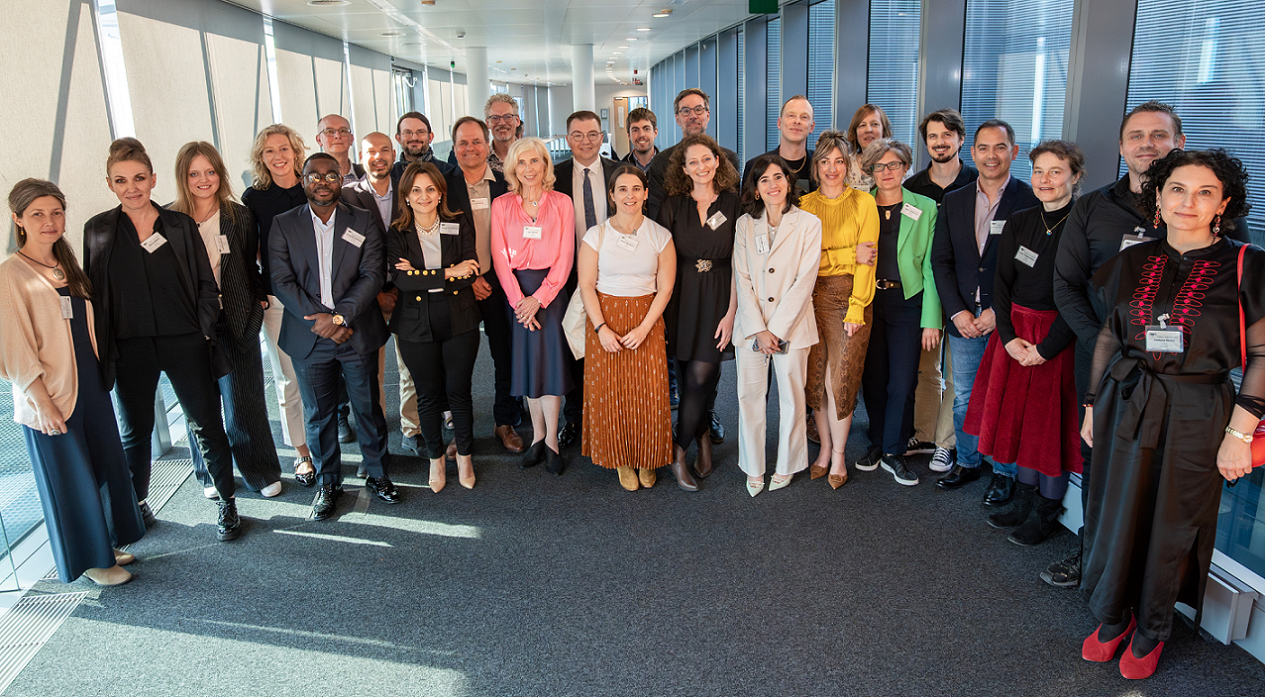Why is seeking grant funding a smart move? What are the barriers facing Polish researchers? What steps should be taken to enhance the position of science in Europe? Prof. Justyna Olko and Prof. Michał Tomza, NCN and ERC grant recipients discuss the role of ambassadors for the ERC.
Prof. Justyna Olko, historian, sociolinguist and ethnologist, heads the Centre for Research and Practice in Culture Continuity at the Faculty of “Artes Liberales”, University of Warsaw. She is a recipient of two ERC grants. Prof. Michał Tomza specialises in the quantum description of matter at ultralow temperatures, including interactions and collisions between ultracold atoms, ions and molecules. He works at the Faculty of Physics, University of Warsaw. Prof. Tomza is a former NCN Award winner and ERC Starting Grant recipient.
Prof Olko and Prof. Tomza are among Ambassadors for the European Research Council that funds groundbreaking research projects. Apart from encouraging grant applications, 32 ambassadors from 26 countries are anticipated to foster knowledge exchange, elevate the role of science in society and support efficient research funding.
“The ambassador role is still evolving,” says Prof. Michał Tomza, adding that it is a grassroots initiative that builds on collaboration with other researchers, institutions and research community. “We want to exchange experience, encourage grant applications and highlight the vital role of independent science. GPS, Internet, electricity, much of what we use today, comes out of sheer curiosity. This is why it’s essential to build an ecosystem that enables research to flourish, even when its potential application remains uncertain,” he says.
Prof. Justyna Olko emphasises that it is the ambassadors’ obligation to promote research against the backdrop of current social, political and economic challenges. “Science does not exist in a vacuum but helps us understand social dynamics, respond to climate challenges and build resilience against disinformation. It is more than just technological innovations. Knowledge in the humanities, culture and education matters, although in a different dimension,” she says.
My guests emphasise that the strict division between basic and applied research is often misleading. “History, anthropology, cultural studies often equip us with tools to understand reality and anticipate threats. In that sense, they are just as applicable,” explains Prof. Olko.
Why are Polish researchers rarely among ERC grant recipients?
In the history of the ERC, over the past 18 years, researchers working in Poland have received less than 100 grants, which is clearly below Poland’s average scientific potential. The ambassadors point to several reasons, such as slow career progress (the system fails to encourage the development of early career researchers), insufficient institutional support, lack of trust and excessive bureaucracy. How can that be changed? “We need to support young talent that drives the system forward. The NCN has done a lot already but further encouragement is necessary,” says Prof. Olko. My guests emphasise the importance of mentoring support and advocate for participation in such programmes as ERC Mentoring Initiative or Excellence in Science Department of the Polish Academy of Sciences.
At the end of our interview, both ambassadors share some tips for future applicants.
Interview hosted by Anna Korzekwa-Józefowicz.
The podcast is available on Spotify and Apple Podcasts, and on YouTube.
Selected quotes
Professor Justyna Olko:
“The role of [ERC ambassadors] was introduced for the first time at the initiative of the Association of ERC Grantees. We are expected to have responded to the challenge in order to promote the ERC in view of the current social, economic, political and other challenges facing the world.”
“As far as I am concerned, the division between basic and applied research is artificial. Each research project, given enough time, has the potential to influence non-academic reality.”
“The ability to apply and implement research findings must not be mistaken for commercialisation. Social, educational and cultural demands, including environmental knowledge and protection of resources, require accessible knowledge and application, not necessarily in the commercial context.”
„Structurally, for me the most important aspect [of the ERC] is the confidence it places in researchers. Trust faces strong headwinds everywhere, yet the ERC allows grants to be adjusted thoughtfully and as needed, in response to new challenges.”
“On the other hand, we must wonder how to use the knowledge, lessons learnt from projects and discoveries for reflection, to find time to disseminate the knowledge so that it makes its way into education and public awareness.”
Professor Michał Tomza:
“I hope that with the label of ambassadors, we will be able to discuss and convince Polish policy-makers about the importance of basic research funding more efficiently and perhaps even officially.”
“The first and perhaps most fundamental aspect of research is that its direction and outcomes are usually unpredictable. As a physicist, I can point to numerous examples: GPS, internet, transistors or even electricity. Most of them initially involved basic research, with no direct industrial motivation or clear application in mind at the time.”
“If we want to develop startups or other highly commercial projects knowing how to turn scientific discoveries into products, we need a pool of talent and potential that is generated at the fundamental level. Without them, competitive economy and technologically advanced applications are simply out of reach.”
“NCN grants are absolutely priceless. It is obvious that most ERC grant recipients are former NCN grant winners. As far as I am concerned, if not for many projects funded by the NCN pre-ERC, I would have stood no chance at all in ERC grant calls.”
“An ERC project must be very ambitious. What is important, it must tackle new and interesting topics that are of genuine interest to the applicant.”

Ambassadors of the European Research Council, photo ERC
Research and ERC evaluation process have already been addressed in our Podcast No 2/2025, when we talked to Prof. Grażyna Jurkowlaniec, art historian and Prof. Ewelina Knapska, neuroscientist, as well as in Podcast No 4/2024 in an interview with prof. Artur Obłuski, archaeologist and Prof. Piotr Sankowski, computer scientist.
